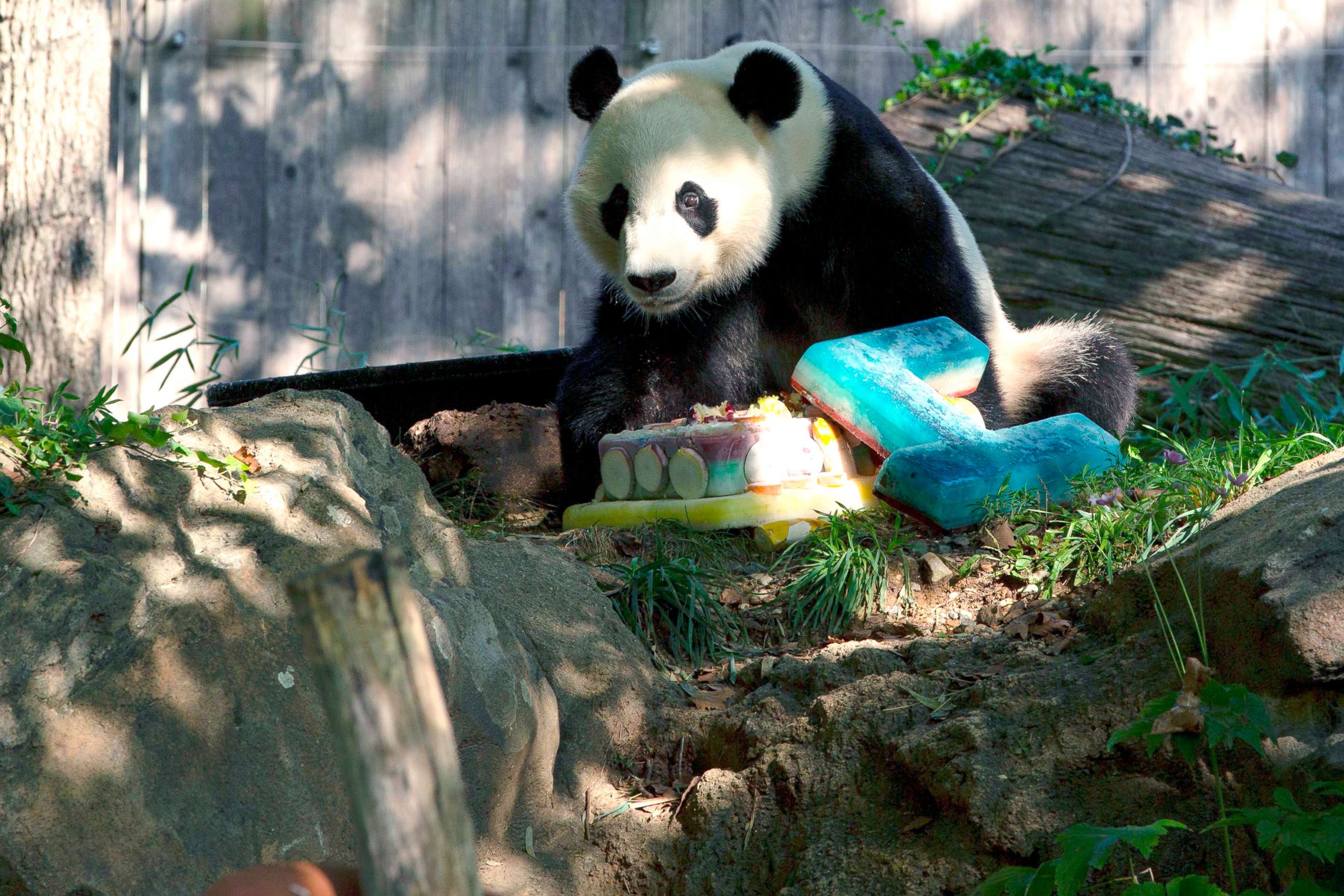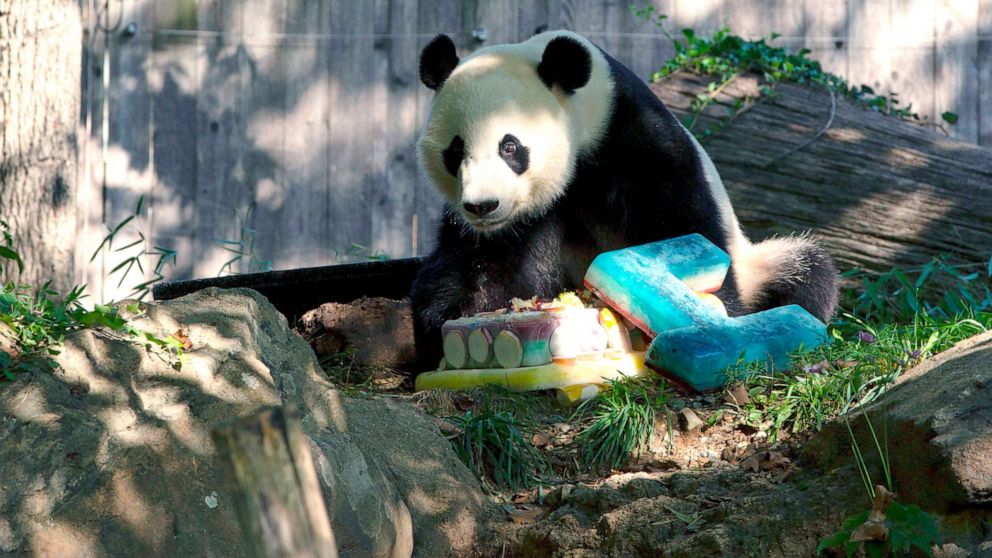The National Zoo says bye bye to Bei Bei: 4-year-old panda to leave for China on Nov. 19
Bei Bei, one of three giant pandas at the Smithsonian's National Zoo in Washington, is scheduled to leave the nation's capital on Tuesday, Nov. 19 to live in China, zoo officials said Friday.
The expected move is part of an agreement with the China Wildlife Conservation Association, which dictates that any giant panda cub born at a U.S. zoo be sent to a breeding program in China after their fourth birthday. Bei Bei follows in the pawprints of his sister, Bao Bao, who left in 2017, and his brother, Tai Shan, who left in 2010, in an effort to breed more of the giant panda species in their native homeland.
"Bei Bei is part of our family," Steve Monfort, director of the Smithsonian’s National Zoo and Conservation Biology Institute, said in a statement on Friday. "Our team has cared for him, learned from him and, along with millions, loved watching him grow. We’re sad he’s leaving, but excited for the contributions he will make to the global giant panda population."
A fan-favorite at the zoo, visitors have watched Bei Bei in person and via "panda cam" grow from a small cub to a 240-pound bear since his birth on Aug. 22, 2015. To celebrate Bei Bei's first four years of life in the district, the zoo is hosting a farewell celebration dubbed "Bye Bye, Bei Bei" from Nov. 11 to Nov. 18.
With less than a month left until his departure date, zookeepers are busy preparing Bei Bei for the 16-hour nonstop flight from Washington to Chengdu. Zoo officials said Friday they will first get Bei Bei accustomed to his travel crate by having him walk through it every day before having him spend short periods of time inside with the door closed.
A panda keeper and a veterinarian will accompany Bei Bei on a dedicated B777 FedEx aircraft and offer him treats while he's in the crate, from bamboo and apples to cooked sweet potatoes and biscuits. FedEx has experience transporting giant pandas including the successful transfers of Bei Bei's older siblings to China and Bei Bei's parents to Washington.

Once Bei Bei arrives in Chengdu, his new keepers will accompany him to his new habitat at the China Conservation and Research Center for the Giant Panda. Keepers from the National Zoo have also said they will stay with him until he settles in.
"We have known since the day Bei Bei was born he would be moving to China." Smithsonian Zoo spokesperson Devin Murphy said at Bei Bei's fourth birthday celebration on Aug. 22. "It's also a really exciting milestone for us so we want him to move to China and become part of the breeding program and eventually have cubs and hopefully maybe one day some of those cubs will be released into the wild."
Bei Bei will join the giant panda breeding program in China when he reaches sexual maturity, likely between the ages of 5 and 7.
The National Zoo has worked on a breeding program with Chinese scientists since the U.S. received its first pair of pandas as a gift following President Richard Nixon's visit to China in 1972. It is one of just three American zoos -- including Zoo Atlanta and Memphis Zoo -- that currently have agreements with China to host giant pandas. Earlier this year, the San Diego Zoo sent back its remaining two giant pandas when their lease with China ended and was not renewed.
Bei Bei's parents, Mei Xing and Tian Tian, are the National Zoo's only breeding giant panda couple since 2000. Though the original 10-year, $10 million lease agreement with China to study the pair has been extended multiple times, it's now set to expire on Dec. 7, 2020. It's entirely up to China whether to recall its pandas or not.
According to the National Zoo's website, around 1,800 giant pandas currently live in the wild, while another 300 pandas live in zoos and breeding centers around the world. The International Union for Conservation of Nature changed the status of giant pandas from endangered to vulnerable in 2016, reflecting the species' comeback in recent years.




